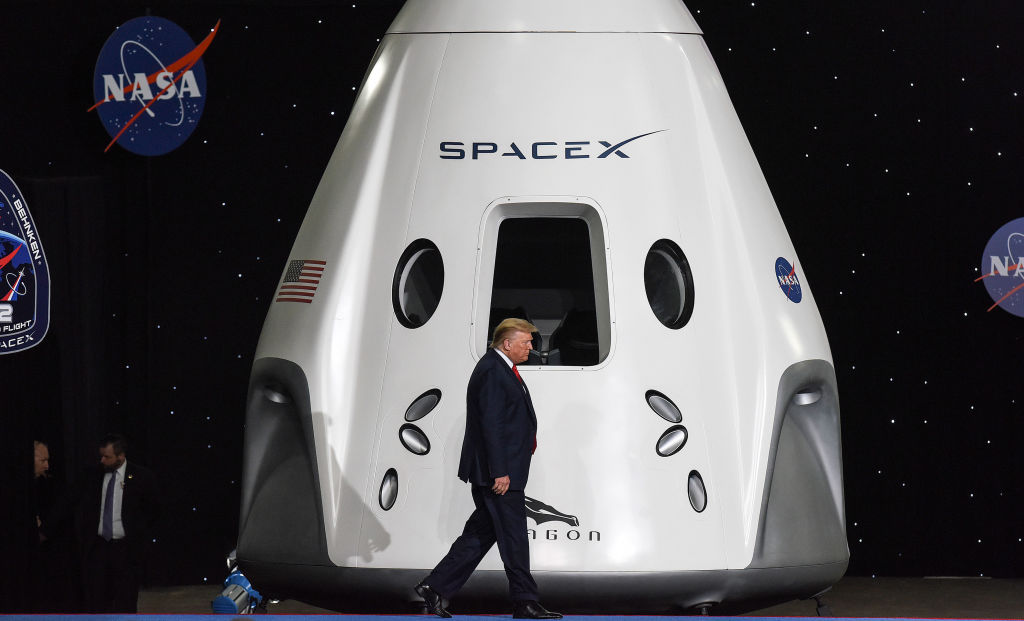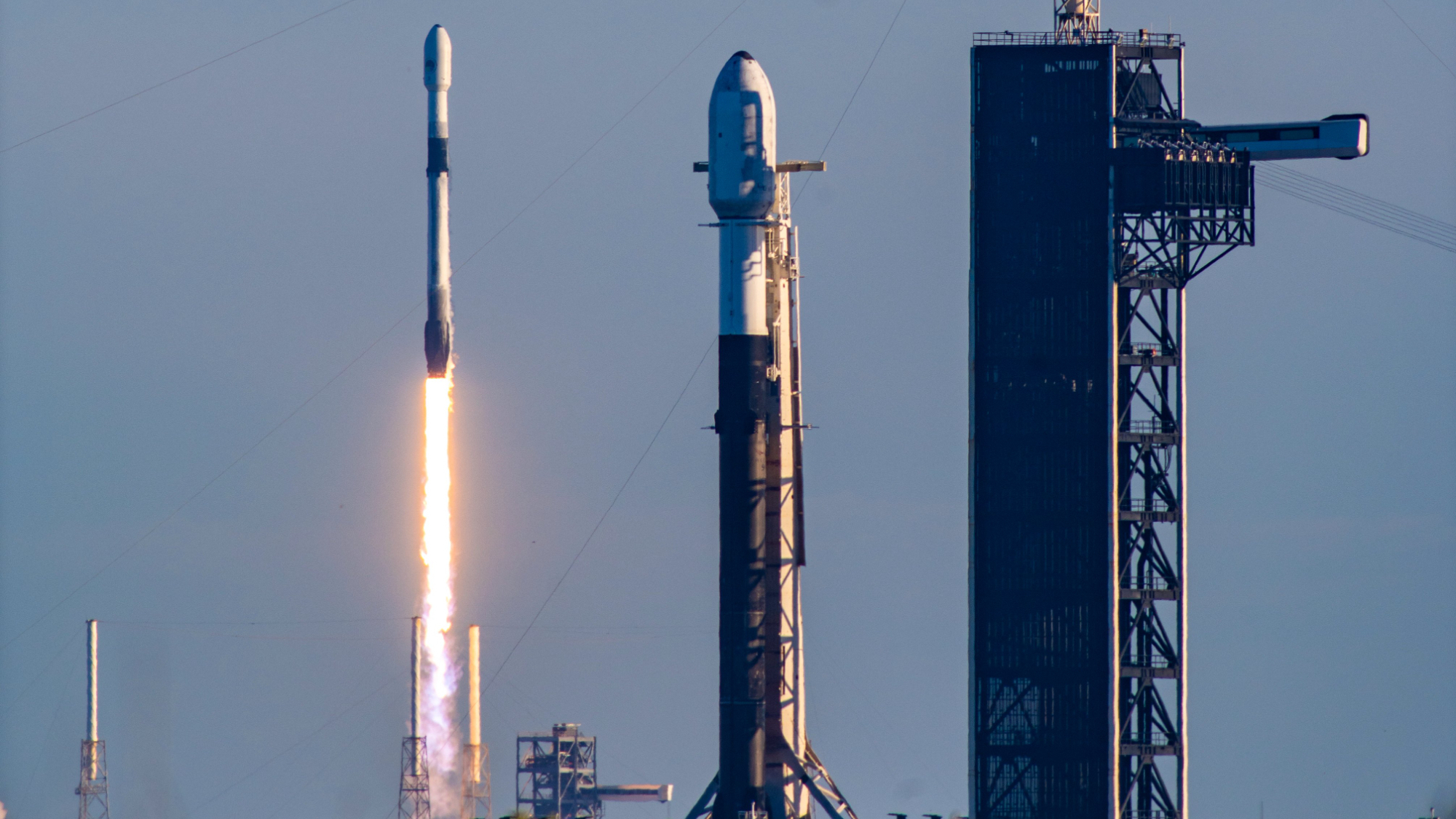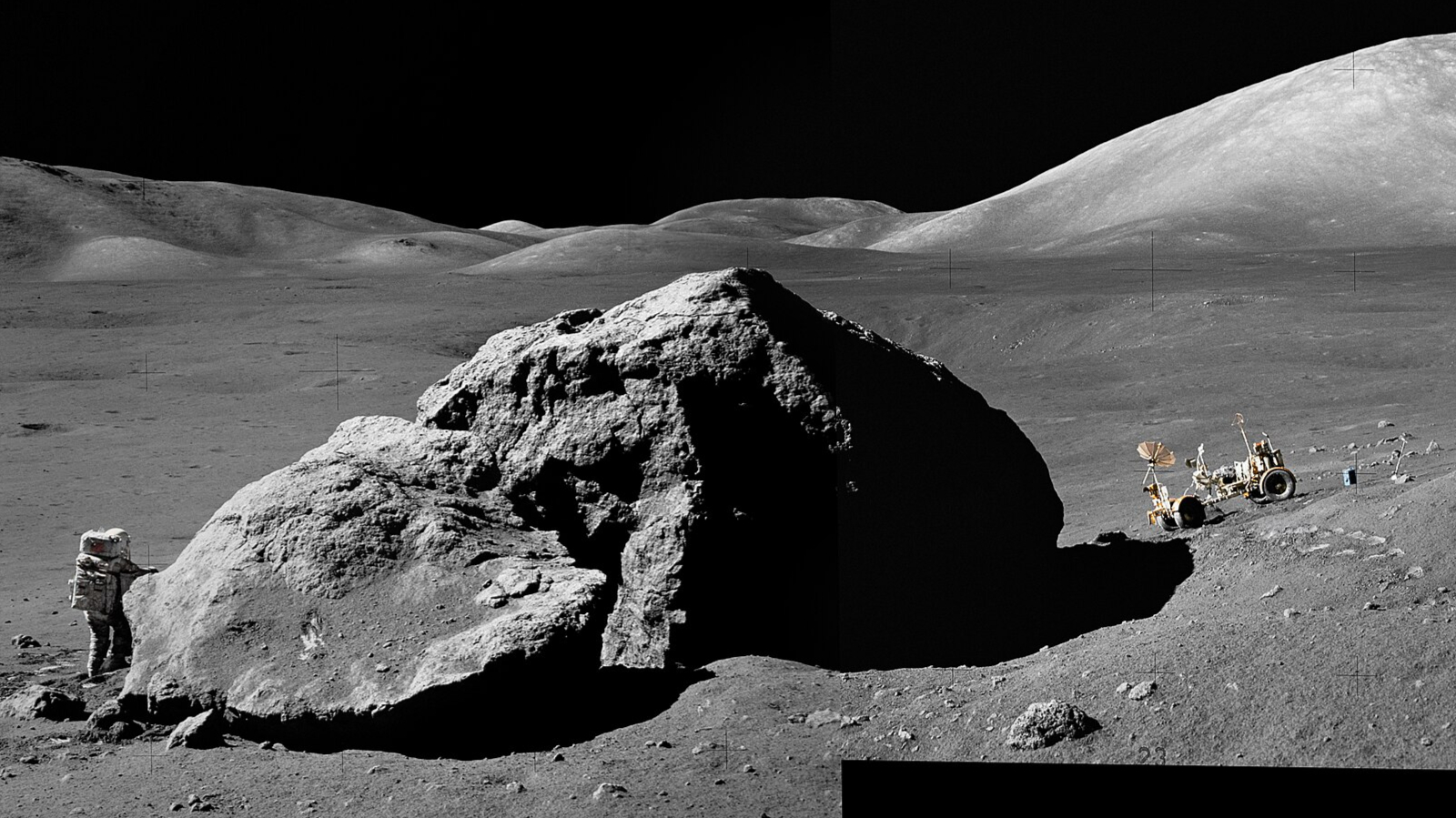How President Trump could change NASA
As the Trump administration returns to power, NASA faces a crossroads that could redefine its mission for decades to come.

As the new Trump administration takes the reins in the White House, there is feverish speculation about how its policies will reshape NASA's direction and priorities, as well as the wider space sector.
Swift and profound changes could impact a number of areas of space, such as the future of the agency's Artemis moon program, which rockets are favored or canceled, funding levels for Earth and climate science and the very operation of NASA itself.
Battles will play out over the coming months and years to decide the direction and extent of a number of U.S. programs and agencies, with push and pull between factions calling for budget cuts or strengthened spending in key areas. Here are some of the big issues and the factors that may decide their fate.
To the moon or Mars?
One of the big issues — with potentially seismic implications for NASA's direction, America's relations with its international space partners and geopolitics — is the future of the Artemis program. Artemis, established by the first Trump administration with the goal of returning humans to the moon, and continued by the outgoing Biden presidency, is years behind schedule, with scrutiny surrounding delays and technical issues.
Related: What a 2nd Trump administration could mean for NASA and space exploration
Elon Musk, the multibillionaire head of SpaceX, a very active part of Trump's election campaign, and co-leader of the new "Department of Government Efficiency," stated on his social media platform X on Jan. 3 that "we're going straight to Mars. The moon is a distraction." For all of Musk's apparent influence, however, it may not be so easy to shift and redefine NASA's direction, with the U.S. Congress having a big say in any developments.
"The new Trump Administration might try to skip the moon and go straight to Mars, but I expect they would encounter the same backlash from Congress as Obama did when he proposed that in 2010," Marcia Smith, who has 40 years of space policy experience and is founder and editor of SpacePolicyOnline, told Space.com. "Congress wants a moon-to-Mars program, not one or the other."
Breaking space news, the latest updates on rocket launches, skywatching events and more!
Dropping the moon as a target would also have geopolitical ramifications, with China also seeking partners for its International Lunar Research Station (ILRS), a parallel but completely separate moon program.
However, some aspects of Artemis, such as the Gateway, which seeks to establish a space station in lunar orbit as a stepping stone to landing astronauts on the moon, could be in the new administration's crosshairs over cost and delays. Such a move would have repercussions with a number of international partners, such as the European Space Agency (ESA), Canadian Space Agency (CSA) and Japan Aerospace Exploration Agency (JAXA) already working on pertinent Gateway hardware.
"Whether Gateway remains part of it is another matter. I can't even guess what that answer will be," Smith said.
Space Launch System
Another uncertainty is the future of the Space Launch System (SLS), NASA's expendable megarocket to enable crewed moon missions. SpaceX is developing the Starship system, which could provide a reusable alternative, but moves to cancel SLS — which has been criticized over unsustainable costs and numerous delays and quality control on the part of lead contractor Boeing — will likely face resistance. Musk also posted his views on the Artemis architecture, stating it to be extremely inefficient.
"The new administration might try to cancel SLS, but it has a lot of support in Congress, which created SLS in the first place in the 2010 NASA Authorization Act," Smith explained. However, some aspects of the system, such as the larger, more powerful Block 1B, could be on the chopping block.
"I sincerely doubt SLS as a whole will be canceled, but would not be surprised if Block IB is terminated in favor of commercial alternatives that weren't even on the drawing boards in 2010, but are coming online now," she said.
A new NASA administrator
Donald Trump has tapped billionaire tech entrepreneur Jared Isaacman to head up NASA. Isaacman has already embarked on two commercial spaceflights using SpaceX and its Falcon 9 rocket and Dragon spacecraft, organizing, funding and commanding both efforts.
Isaacman will need to be officially nominated and then approved by the U.S. Senate. Smith reported that the expected nomination has already gathered support from Republicans, but not without criticism over Isaacman's past campaign donations to Democratic candidates.
While he would be somewhat beholden to decisions made by Congress, Isaacman would bring his own views and preferences to NASA at a potentially transformative moment for the agency

The US Space Force
The U.S. Space Force, which was established by the previous Trump administration back in December 2019, will likely see changes during the new administration. It is currently based in Colorado but could be moved. Its level of funding could also be an issue of fierce debate as priorities and details are thrashed out in Congress.
"Getting money for Space Force or anything else in the government is going to be one of the defining battles this year, not just between Democrats and Republicans, but within the Republican party," said Smith. "Congressional defense hawks want huge increases in defense spending, while hard-line Republicans are totally focused on debt reduction."
The two don't match, she noted. "As for moving Space Command from Colorado to Alabama, it's almost a foregone conclusion."
Climate and Earth sciences
Similar battles will play out over climate and Earth science, with the Trump administration likely keen to cut funding for these endeavors, but once again facing pushback from Congress.
The first Trump Administration tried to sharply curtail NASA's Earth science programs, but Congress overruled those cuts every year.
"It's tough to gauge how far Congress would go this time to save those NASA programs, but the bigger fight likely will be over NOAA [National Oceanic and Atmospheric Administration]," said Smith. NOAA conducts work and research related to weather and climate and other areas.
The return of the Trump administration promises a turbulent and transformative period for NASA and the broader U.S. space sector. With debates swirling over the future of Artemis, the role of commercial players like SpaceX, the fate of flagship programs like the Space Launch System, and NASA's commitments to climate science, the stakes appear high. The decisions made in the coming months will reverberate across U.S. space policy.
Join our Space Forums to keep talking space on the latest missions, night sky and more! And if you have a news tip, correction or comment, let us know at: community@space.com.

Andrew is a freelance space journalist with a focus on reporting on China's rapidly growing space sector. He began writing for Space.com in 2019 and writes for SpaceNews, IEEE Spectrum, National Geographic, Sky & Telescope, New Scientist and others. Andrew first caught the space bug when, as a youngster, he saw Voyager images of other worlds in our solar system for the first time. Away from space, Andrew enjoys trail running in the forests of Finland. You can follow him on Twitter @AJ_FI.
-
penguin44 They totally should. Look, I don;t like Musk and his personal policies and politics. However the man is brilliant and is on a great path with Falcon 9 and Starship.Reply
NASA is a great agency and should continue as such. However NASA has proved many times that it cannot build and maintain a space program and launch vehicle. Shuttle, Ares, X33, Artemis. Gemini to Apollo was USAF and NASA ran the show. -
penguin44 Reply
It was, since it was a test flight of a new version. You do know it's still in a test phase right?Viking said:The last Starship was a huge success, right? -
Hildy In general, manned missions will survive in some form and I suspect that the moon will be the target due to China.Reply
My concern is science missions. The Europa Clipper and DAVINCI will probably be cancelled entirely along with smaller deep space missions. I doubt we'll see any new non-human missions to the moon or Mars.
Earth science missions will also suffer unless they deal with weather predictions. -
penguin44 Reply
Well Clipper launched in October so that will continue. I don't think it will be cancelled.Hildy said:In general, manned missions will survive in some form and I suspect that the moon will be the target due to China.
My concern is science missions. The Europa Clipper and DAVINCI will probably be cancelled entirely along with smaller deep space missions. I doubt we'll see any new non-human missions to the moon or Mars.
Earth science missions will also suffer unless they deal with weather predictions. -
eltodesukane Why move Space Command from Colorado to Alabama?Reply
What's already there in Alabama? -
COLGeek Reply
A large number of the Nation's space programs and even some NASA offices are located at Redstone Arsenal/Huntsville, AL.eltodesukane said:Why move Space Command from Colorado to Alabama?
What's already there in Alabama? -
TRex I hope they cancel all funding for the monumental waste of money on global warming, or its stealthy moniker "climate change" (as though the climate hasn't been changing throughout earth's history!)Reply
CO2 is not only vital for its well known roles as plant food and oxygen generation via photosynthesis. It has a largely unrecognized role as being responsible for the slowly continuous vertical convection of thermal energy from the earth's surface (where it absorbs solar radiation) up to the tropopause, beyond which this energy is radiated into outer space.
Without this convective thermal "resistance" provided by CO2 and other greenhouse gases, the surface of the earth would be much colder and unable to support life as we know it. Thus CO2 is largely responsible for the single most striking feature of earth's atmosphere--the critical warm layer of the troposphere, within which life can flourish.
Current atmospheric concentrations of CO2 are 1/10 or less than those encountered in geologic times, during which the earth was much greener and life was abundant. In fact, we're not that far from a cataclysmic lower bound, below which photosynthesis would be extinguished.
It's time to stop this politically driven, model-centric gravy train! John Von Neumann once commented about models, that "with four parameters I can draw an elephant, and with five, I can make it wiggle its trunk." Those of us who have worked with models in the real world have been humbled by their frequent abject failures to reflect reality.
